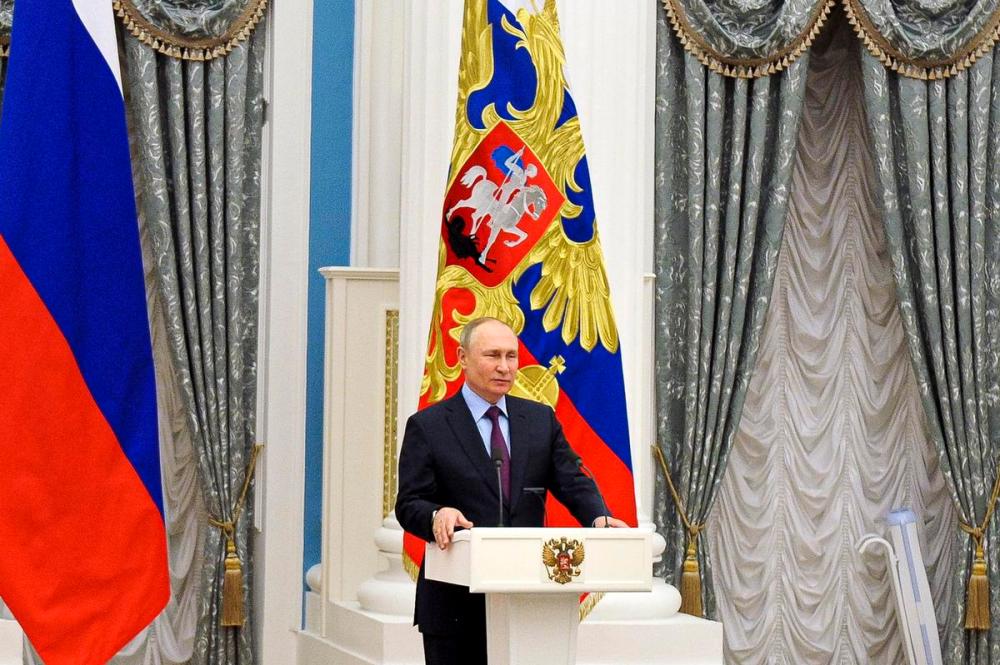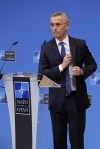Here is a list of Russian allies during the Ukraine invasion and the reasons why
Advertisement
Read this article for free:
or
Already have an account? Log in here »
To continue reading, please subscribe:
Monthly Digital Subscription
$0 for the first 4 weeks*
- Enjoy unlimited reading on winnipegfreepress.com
- Read the E-Edition, our digital replica newspaper
- Access News Break, our award-winning app
- Play interactive puzzles
*No charge for 4 weeks then price increases to the regular rate of $19.00 plus GST every four weeks. Offer available to new and qualified returning subscribers only. Cancel any time.
Monthly Digital Subscription
$4.75/week*
- Enjoy unlimited reading on winnipegfreepress.com
- Read the E-Edition, our digital replica newspaper
- Access News Break, our award-winning app
- Play interactive puzzles
*Billed as $19 plus GST every four weeks. Cancel any time.
To continue reading, please subscribe:
Add Free Press access to your Brandon Sun subscription for only an additional
$1 for the first 4 weeks*
*Your next subscription payment will increase by $1.00 and you will be charged $16.99 plus GST for four weeks. After four weeks, your payment will increase to $23.99 plus GST every four weeks.
Read unlimited articles for free today:
or
Already have an account? Log in here »
Hey there, time traveller!
This article was published 25/02/2022 (1384 days ago), so information in it may no longer be current.
As Russian troops continue their invasion of Ukraine, the question of allyship is repeatedly in debate.
While most countries have condemned Russia for invading Ukraine and threatening its sovereignty, others remain in support of Russian President Vladimir Putin’s actions.
Putin issued a now infamous warning to those standing against him on Thursday, saying consequences for intervening in his invasion of Ukraine would be “greater than any you have faced in history.”

Refusing to back down, U.S. President Joe Biden condemned Russia’s allies and issued his own warning, saying any country in support would be “stained by association.”
Here is a list of countries choosing to support Russia:
1. Belarus
On numerous occasions Belarus has backed up Russia by either trying to justify or dismiss the country’s actions.
Initially sent to partake in joint military exercises until Feb. 20, the estimated 30,000 Russian troops in Belarus will now stay indefinitely. This further pressured Ukraine to be more aware of its borders, as the country’s capital Kyiv is only around 150 km from the Belarusian border.
2. China
China has refused to call Russia’s attack on Ukraine an “invasion.” And in a move that could help reduce the impact of Western sanctions against Moscow, China approved imports of Russian wheat (Russia is one of the largest wheat producers).
The country’s assistant foreign minister, Hua Chunying, has chosen to blame the U.S. and claims Biden fuelled the fire during the initial conflict.
China-Russia ties have grown closer under the rule of Chinese leader Xi Jinping, who hosted Putin at talks in Beijing earlier this month. The two leaders issued a joint statement backing Moscow’s opposition to a NATO expansion in former Soviet republics and buttressing China’s claim to the self-governing island of Taiwan – key foreign policy issues for Beijing and Moscow.
Earlier, China’s Embassy in Kyiv issued a warning to its citizens to stay home and place a Chinese flag inside or on their vehicle if they needed to travel long distances.
On Friday, China was one of the countries organizing evacuation flights to collect stranded citizens who were unable to fly home.
3. Iran
Iran lays blame on the presence of the North Atlantic Treaty Organization, NATO — a Western security alliance — in the region. The Iranian Foreign Minister, Hossein Amir Abdollahian, said the crisis is “rooted in NATO’s provocations.”
In January, Iran, Russia and China held joint navy drills in the Indian Ocean, covering some 17,000 square kilometres, including night fighting, rescue operations and firefighting drills. It was the third joint naval drill of the three countries since 2019, and coincided with a recent visit by Iranian President Ebrahim Raisi to Russia that ended shortly before.
At that meeting, Raisi said Iran was willing to expand co-operation with Russia in the political, economic, defence and security spheres and in space exploration.
4. North Korea
North Korea’s Supreme Leader, Kim Jong Un, known for his authoritarian state, weighed in on the Russian invasion. He demanded the U.S. cease its, “hostile policy for isolating and weakening,” Russia.
The North Korean Foreign Ministry also called the 3,000 U.S. troop deployments in Germany, Poland and Romania, “a serious security concern.”
5. Syria
Hours after Putin had announced recognizing Luhansk People’s Republic and Donetsk People’s Republic as independent states, Foreign Minister Faisal Mekdad made a statement in agreement.
Russia is a main backer of Syrian President Bashar Assad’s government and its military intervention in 2015 helped tip the balance of power in his favour. The Syrian government described attacks on Ukraine as a “military operation by the Russian allies to preserve their national security and stability.”
6. Venezuela
Earlier in February, Venezuelan President Nicolas Maduro said the country would have “powerful military co-operation” with Russia. The two countries have close relations, especially as Venezuela has become increasingly isolated under economic sanctions imposed by the U.S. and the European Union, who accused Maduro of undermining democratic institutions to hold onto power.
“Venezuela announces its full support to President Vladimir Putin in the defence of peace in Russia,” Maduro said at a news conference Tuesday.
7. Nicaragua
Nicaragua’s President Daniel Ortega was one of the first world leaders to voice support of Russia. On Monday, he blamed Ukraine for inciting the war by looking for NATO membership. “That explains why Russia is acting like this. Russia is simply defending itself,” Ortega said.
Other countries, who are known to be Russian allies, have yet to take a stance on the conflict. This includes countries in the Collective Security Treaty Organization (CSTO) with Russia such as Armenia and Kazakhstan.
With files from Associated Press and Alessia Passafiume. This story has been updated from its original version.
Ashima Agnihotri is a reporter for the Star’s radio room based in Toronto. Reach Ashima via email: aagnihotri@thestar.ca





